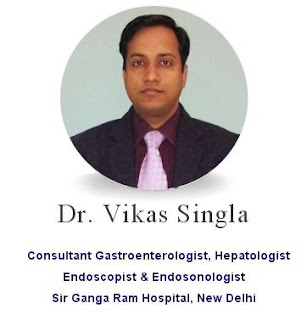Endoscopy is typically used by doctors to check the internal organs of a human body. During the endoscopic procedure, anesthesia may be administered to the patient at times. Since, this procedure is used to inspect the interiors of the gastrointestinal tract endoscopies are usually carried out on those suffering from gastroenterological illnesses.
An endoscope is essentially a flexible tube which has light and a small camera affixed at the end of the tube. This device is ideally used by the doctor to see the digestive tract of the patient on a monitor, and identifies abnormalities if any which may be causing a certain health condition. Some of the best endoscopists in Delhi, Gurgaon and other major cities use advanced technology and the most modern practices in medicine to diagnose rare diseases of the pancreas, gastrointestinal tract and liver non-invasively.
Endoscopies are typically recommended by physicians so as to evaluate and inspect certain symptoms that may be indicative of a disorder in the digestive tract. Some conditions that may require an endoscopic assessment are explained below:
· Polyps in the colon
· Gastritis
· Ulcers and trouble with swallowing
· Stomach pain
· Digestive tract bleeding
· Chronic diarrhea
· Chronic constipation
Endoscopy is also used by the doctors to take a biopsy. Biopsy is essentially the process of eliminating a small bit of tissue from the body of the patient so as to test it for the presence of any abnormalities. But, it is always suggested that one should only look for qualified and best endoscopists in Delhi, Gurgaon and other major cities to carry out such complex procedures. Besides this, a physician may use an endoscopic procedure for other reasons too which are listed below:
· Verification of a previously made diagnosis via a biopsy. Conditions such as anemia, cancers and inflammation of the GI track can be checked via endoscopy
· Treating internal organs, for example clipping off a polyp, eliminating an object from the digestive tract, cauterizing a bleeding vessel or broadening of the esophagus
· The assessment of symptoms for example nausea, vomiting and stomach pain to diagnose conditions of the GI track.
Even though non-invasive, endoscopy is quite a critical and crucial procedure and needs to be performed with a lot of care so as not to injure the patient. It is as such advisable that whenever a procedure such as this needs to be carried out, only the best endoscopists in Delhi, Mumbai, Gurgaon and other major cities where there are good and renowned hospitals must be contacted so as to ensure complete safety of the patient as well as success of the procedure.





